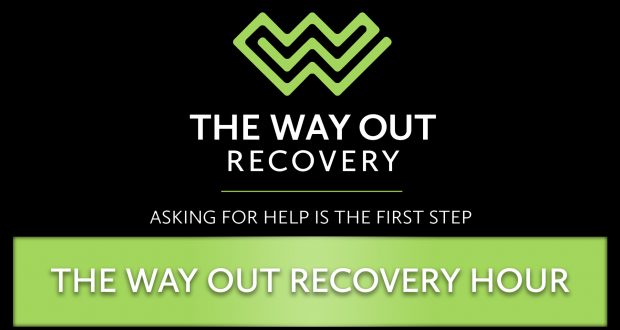An outpatient rehab in Santa Clarita is explaining the relationship between stress and addiction and how the two correlate in the brain, as many people’s stress levels continue to rise due to the coronavirus pandemic.
Sponsored Articles
While a person may be able to come up with many different “trivial” reasons why they drank on a particular occasion, The Way Out Recovery SCV Program Director Bob Sharits pointed out that an addict doesn’t need a reason because of the way the brain works.
“If I’ve crossed the line into addiction, there’s a physiological thing that takes place that doesn’t need an excuse,” Sharits explained. “The part of the brain that makes up the excuse shuts down — it doesn’t even work.”
Related: Outpatient Rehab In Santa Clarita Describes Crossing The Line Into Addiction
When the stress in a person’s life has become so great that they feel overwhelmed by it, the brain will tell the person they can’t take any more and want to turn to an addictive behavior that has offered immediate stress relief in the past, such as drinking or drugs, according to Sharits.
“If you haven’t crossed the line into addiction, what happens is, the reasoning part of your brain says, ‘Well but wait a minute, I can’t do that,'” Sharits said. “‘I can’t drink right now no matter how stressed out I am.’”
Sharits explained that stress comes from a chemical being released inside the body called cortisol, and that as stress levels rise, so do the levels of that chemical in the brain, which cause the brain to want to find a way to relieve that stress.
Using hunger as an example, Sharits noted that cortisol levels will rise if there aren’t enough nutrients in the body, causing the person to feel hungry and search for food to satisfy that hunger. Once the food is eaten, neurotransmitters are released inside the brain that reduce the person’s stress level.
“When my stress level rises because of hunger, it gets to a point where I just can’t take any more and I’ve got to have something to eat,” Sharits said. “If I can get food and I eat the food, cool, all is well, everything’s good. But think about if you can’t get the food.”
With stress and hunger removed from the situation, a person is more selective about what they eat based on things like expiration date, health and taste. But if stress and hunger are an issue, these factors become less important, according to Sharits.
“When I reach a certain level of stress, I don’t care if it’s healthy anymore — I’ll eat whatever’s right there,” he said. “I don’t care if I’m a vegetarian — if you’ve got a burger, let’s eat it. Because I’ve reached that certain level where the stress outweighs the values that I’ve set for myself or the morals that I’ve set for myself.”
Taking it a step further, if a person still doesn’t have access to any food at all, their survival instinct kicks in as their stress and hunger continues to rise.
“The part of my brain that has any reasoning left in it at all will completely shut down and I will do anything to get food,” Sharits said, using eating out of dumpsters as an example. “That’s what happens in addiction, is you can’t reason it anymore, and so I know that I have kids to take care of and I know that I have to go to work and I know that I have obligations and I know that I’m not supposed to be drinking and I know that I was just in the hospital last week because my organs are shutting down. But the stress is rising so much that my brain will shut down in the front, and it’s automatic. I automatically go for the food — I automatically go for the drug, and you can’t differentiate those two things.”
Most people tend to walk around with their “cup” about a quarter full of stress due to everyday aspects of life, but adding in the coronavirus pandemic, many people’s cups are now three quarters of the way full all the time, according to Sharits.
“It takes a lot less to tip over that last quarter right?” he said. “Anything can set us off. That’s why we’re maybe a little shorter, we’re a little bit snappy with each other and a little rude to each other in lines. That’s why.”
For instance, Sharits recalled seeing on the news the story of a woman who asked another woman in a store why she wasn’t wearing a mask, and the person being questioned “flipped” and broke the other woman’s leg.
“The reason that that happened is because the person who assaulted that woman is walking around with her cup full, and all it took was that one lady to say, ‘How come you’re not wearing a mask,’ and it snapped,” Sharits said. “She went overboard, and in that instance, what would make her feel better, what would decrease her stress levels — she thought — is to assault that woman. She’s not thinking about that, she’s just reacting right now. Same thing happens in addiction.”
To hear more from Sharits about the relationship between stress and addiction, particularly during the coronavirus pandemic, watch the YouTube video above or click here for the full podcast.
Ed. Note: This article is a KHTS Community Spotlight for The Way Out Recovery Outpatient Rehab in Santa Clarita.
In Santa Clarita, drug issues are a major concern for many. The mission of The Way Out Recovery Outpatient Rehab in Santa Clarita is to provide high quality, effective alcohol and drug rehab outpatient services to the Santa Clarita Valley. The Santa Clarita rehab’s goal is to assist adolescents, adults and their loved ones in becoming happily and usefully whole, free from drug addiction. Those seeking alcohol and drug treatment in Santa Clarita, a drug rehab in Santa Clarita, a teen drug rehab or simply a “rehab near me” can rest assured that The Way Out Recovery SCV’s philosophy is to teach life-long coping skills and strategies to assist in improving quality of life and living happily and meaningfully without the need of destructive behaviors.
(661) 296-4444
The Way Out Recovery SCV – Santa Clarita
youtube.com/watch?v=MhUvJEsVQQY
The Way Out Recovery SCV, Drug Rehab in Santa Clarita, Alcohol and Drug Treatment in Santa Clarita, Santa Clarita Drug Issues, Teen Drug Rehab, Santa Clarita Rehab, Outpatient Rehab in Santa Clarita, Rehab in Santa Clarita, Rehab Near Me

 KHTS Radio Santa Clarita Radio – Santa Clarita News
KHTS Radio Santa Clarita Radio – Santa Clarita News




